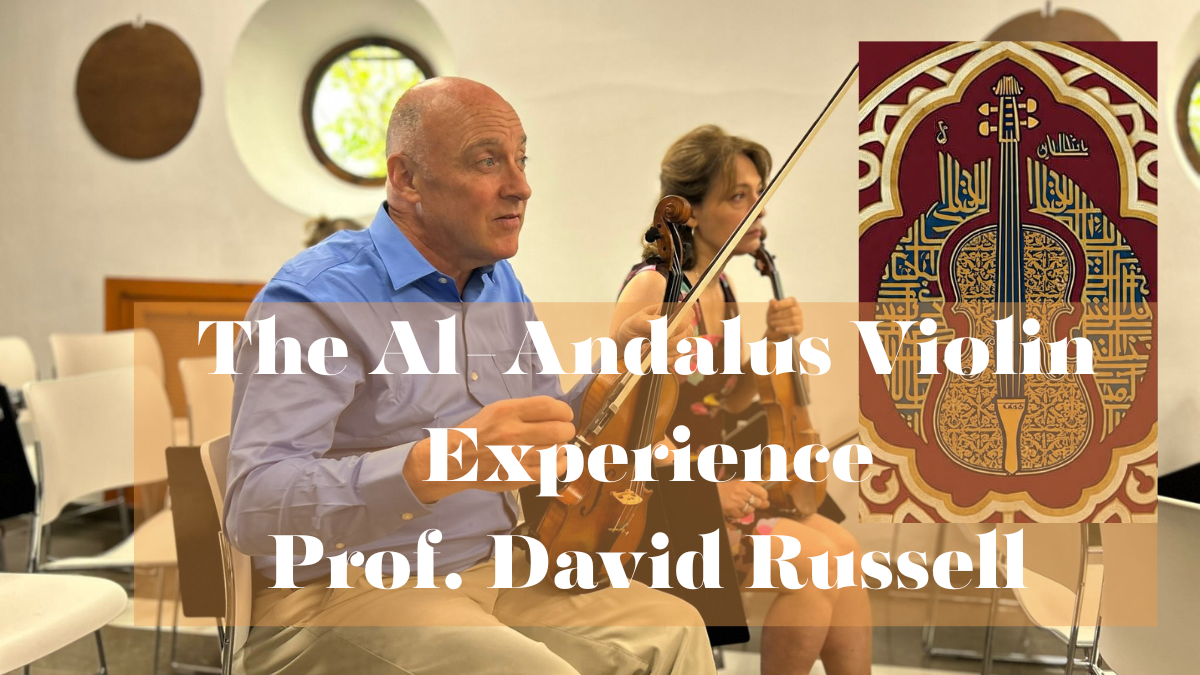
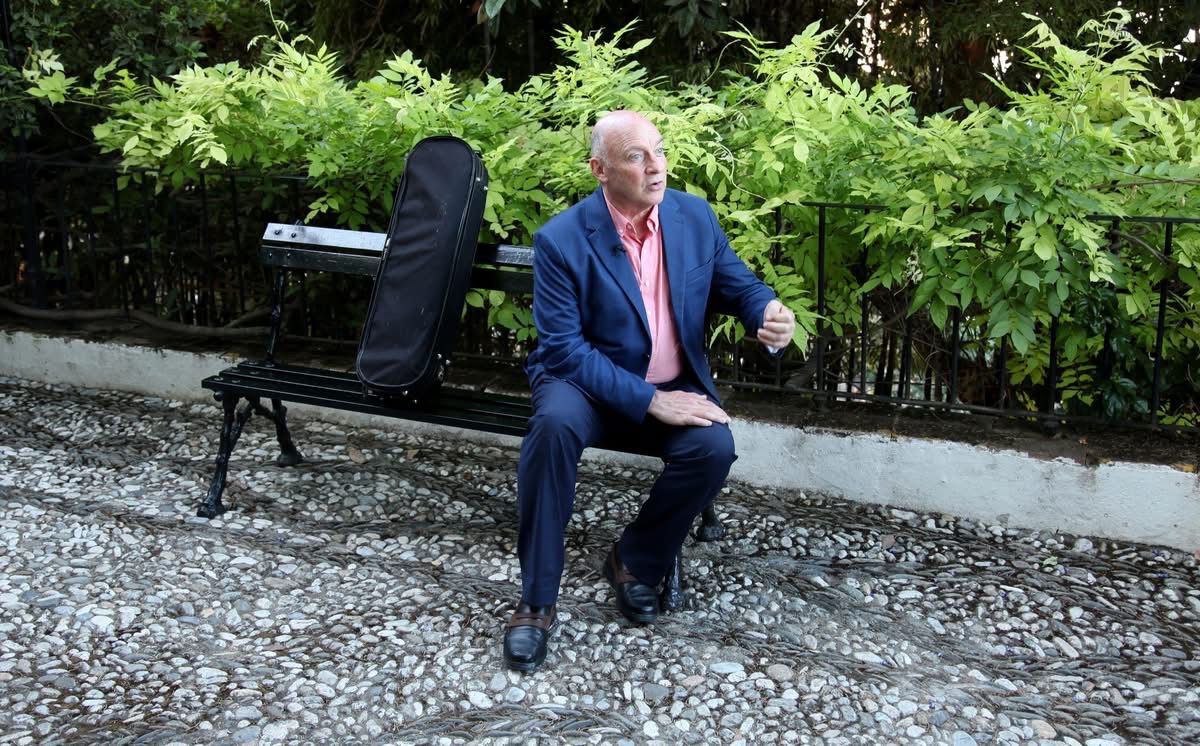
Nestled in the heart of Granada, with the Alhambra in view and flamenco echoing from the caves of Sacromonte, Masterclass Al-Andalus offers young violinists far more than technical training.
Under the direction of American violinist and pedagogue David Russell, the program blends world-class instruction with deep immersion in Andalusian culture. The result is a transformative experience where history, tradition, and passion shape artistry—reminding musicians not just how to play, but why we perform music at all.
We interviewed David Russell, Director of Masterclass Al-Andalus.
What do participants take from this Masterclass, and why is it different from other violin programs around the world?
"Masterclass Al-Andalus is unique among masterclasses because it seeks to combine insightful teaching with immersion in the vital culture of Andalusia in a way that inevitably impacts the artistry of the participants. The culture of Al-Andalus had a profound impact on Western Classical Music, and understanding the origins of music developed within that culture can enhance our ability to communicate it more effectively.
Add the potential to experience the “duende” of flamenco culture, and a very potent mixture of elements is created that can transform talented violinists into masterful performing artists."
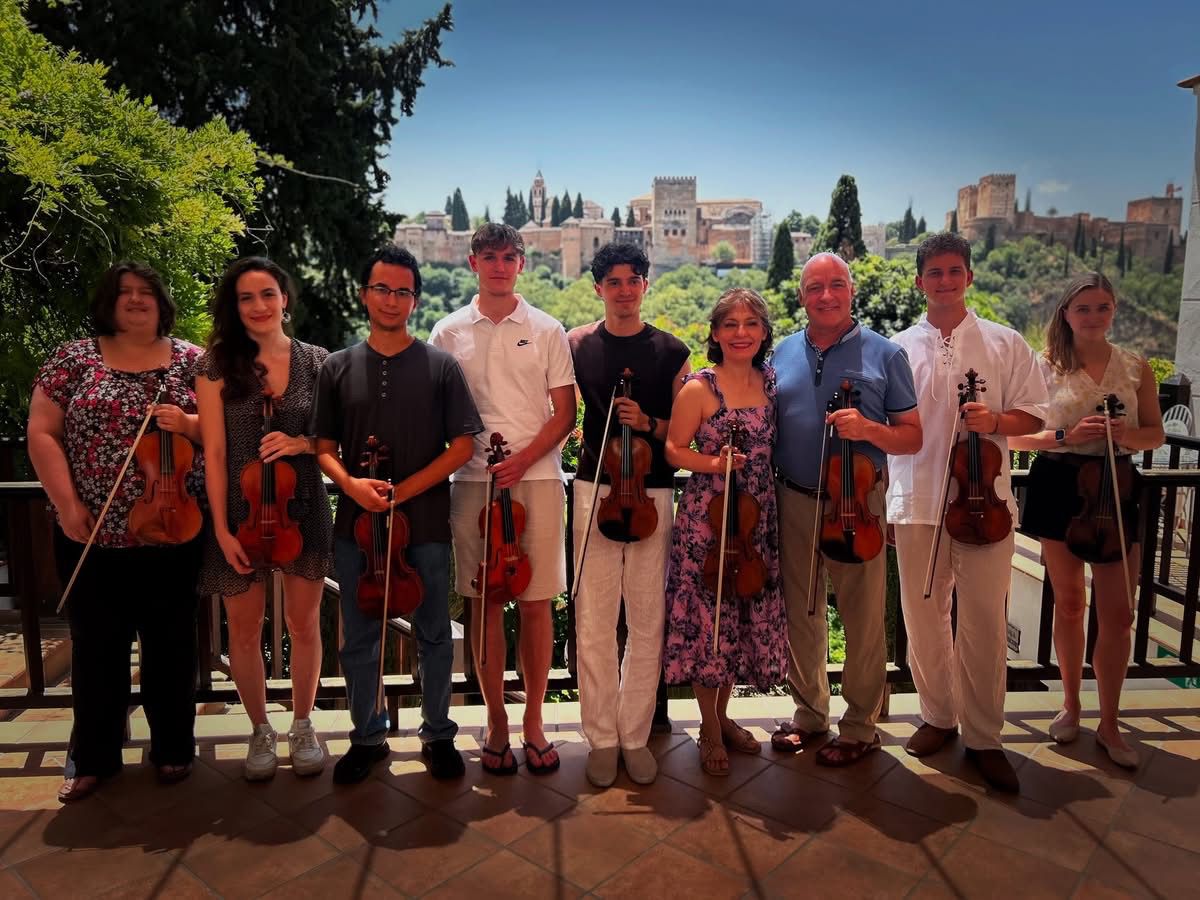
How do you structure the masterclass to balance intensive violin training with cultural immersion in Andalusia?
"I am careful to pace the program's activities so that a seamless experience can occur. Generally, I leave a day between masterclasses so that participants can prepare for the next one, and I also try to pace the schedule of the immersion activities to make them feel as natural as possible. Fortunately, Granada is so culturally rich that such activities are readily available.
We live at the magnificent Carmen de la Victoria within view of the Alhambra, and within a very short walk to Sacromonte (where the flamenco caves are located), as well as the historic Albaicin (historic Arab neighborhood and market). Our immersion experience is very natural because we live in the midst of it all."
What role do the guest instructors play, and how do their perspectives enrich the students' experience?
"One of the things I am committed to is continuing our practice of “team teaching.” It is crucial for an emerging violinist to remain flexible enough to consider multiple perspectives on interpretation and techniques. Exploring the differences in perceptions between the masterclass faculty is an enriching experience for everyone – including the teachers.
The presence of multiple faculty members ensures that we continually consider new possibilities and keep our interpretations fresh and alive."
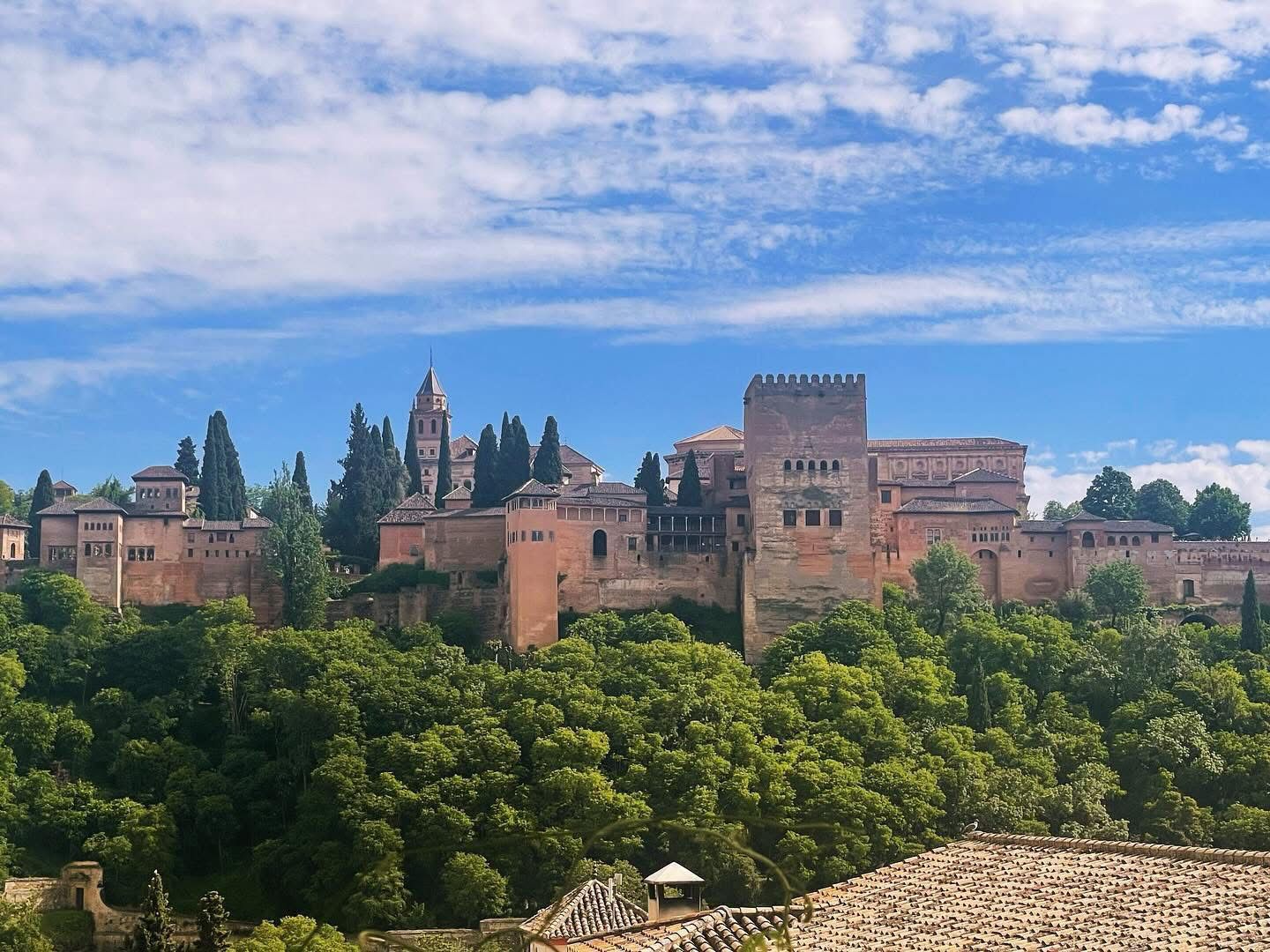
How does the Andalusian setting — with its history, architecture, and atmosphere — influence the way musicians approach their playing?
"It is quite overwhelming to realize how aspects of the music we perform originated during the time of Al-Andalus and beyond. The use of rhythm and harmony developed in unique and important ways and was exported to the rest of Europe from Andalusia. The more than 1,000 years of development included the transformation of Arabic instruments into what eventually became the violin. Solfeggio was also developed there, and the first music conservatory was created in Córdoba in the 8th century.
The music, architecture, and daily life of the region's cultures are integrated into a singularly powerful force of creative expression. Ultimately, the powerful blending of the cultures of the three Abrahamic faiths during Al-Andalus provided the richest of resources from which to draw. The passion of the Roma (Gypsy) people has also made its mark.
Those cultural influences are still felt there today, and Masterclass Al-Andalus exists to benefit from them."
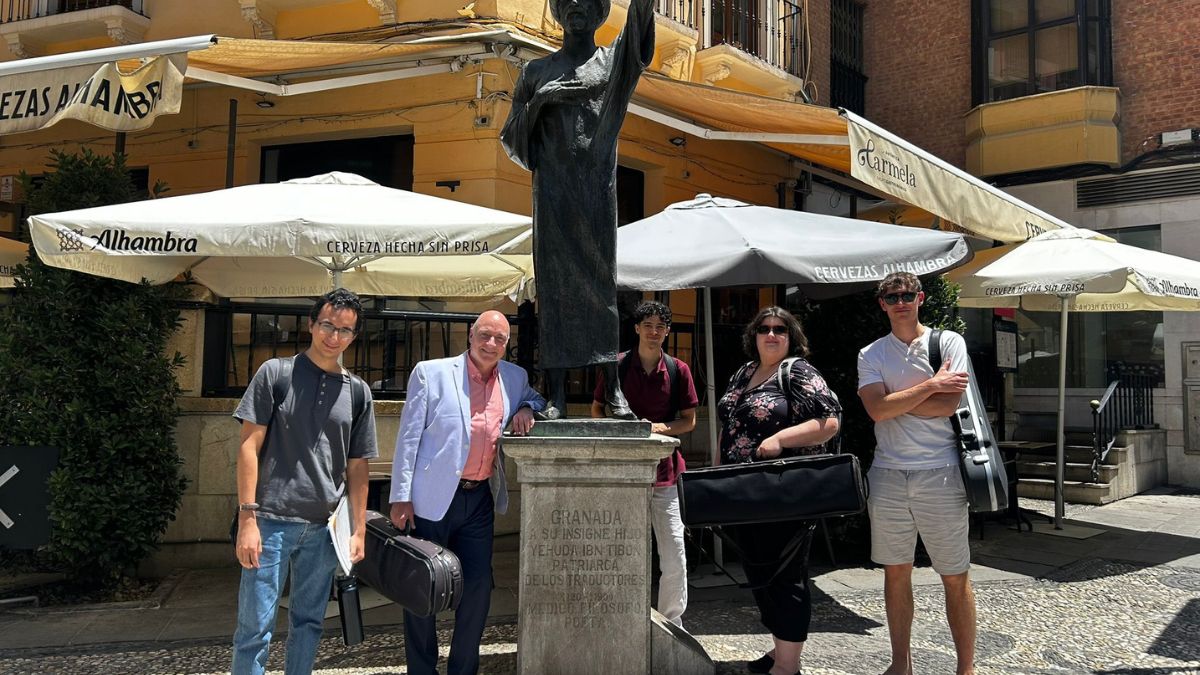
What is your own connection to Andalusian culture, and how has it shaped your vision for this program?
"I was profoundly affected by the Andalusian culture during my many years of teaching and concertizing in the region. At a certain point, however, the culture seemed to suddenly spring to life in my spirit, leaving me with the impression that I had been “adopted” by the culture. With that experience came the unspoken mandate to share this magnificent culture with the world through the passion and perspective it brings to our art.
That passion has never faded in me, and Masterclass Al-Andalus is its main expression. Through the masterclass, I hope to introduce a generation of young artists to this deeply passionate, deeply expressive culture, so that their performances might reach into the hearts of their listeners in new ways, carrying forward the very spirit of the ancient peoples and cultures of Andalusia."
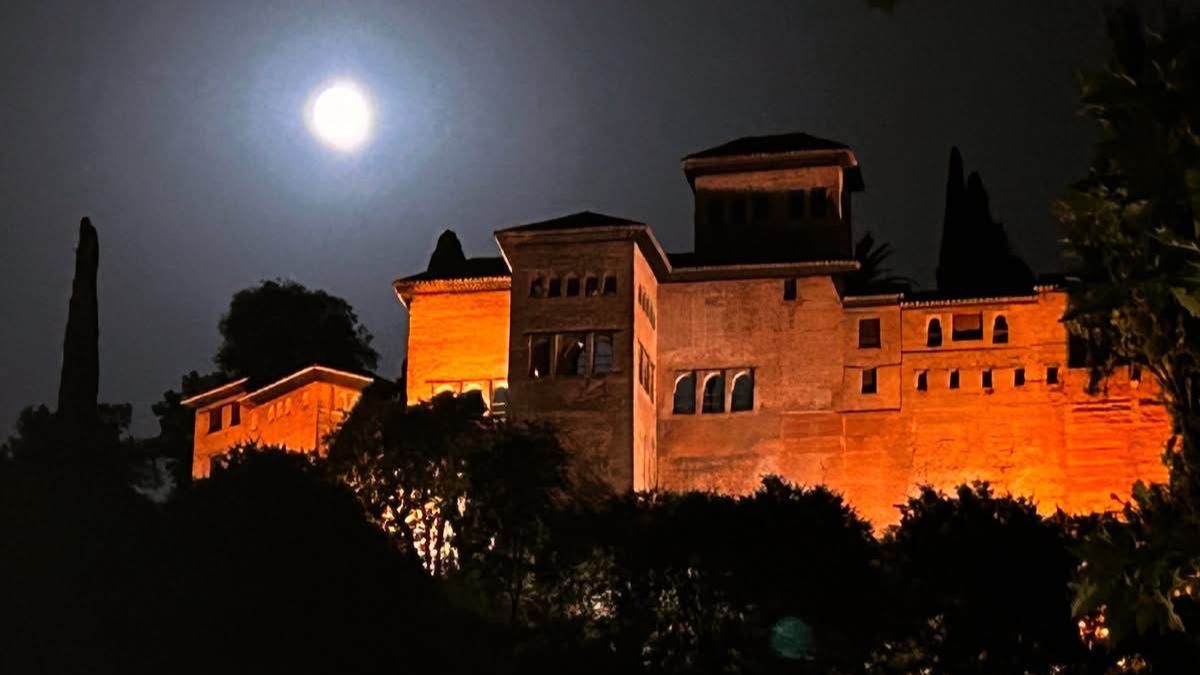
The program highlights the legacy of Al-Andalus. In your view, how do the intertwined Arabic, Jewish, and Christian traditions continue to resonate in Western classical music today?
"There is no passion equal to that of religious/spiritual yearning translated into expression. When we compare the Islamic call to prayer being sung, the chants of Sephardic Jewish people, the music of Byzantine Christians, and the opening cry of “Ay!” found in the Cante Jondo singing of flamenco, it is difficult to distinguish between them, given their similar expressions. The one common denominator between them is the passionate inner spirit found there. (I think we have unfortunately lost much of this most natural expression in our practice of performance in the rarified concert world of today. I hope that Masterclass Al-Andalus might help restore it.
One of the most prevalent developments in the music of Al-Andalus is known as the Andalusian Cadence —a descending four-note chord progression (reflecting our path in life) that culminates in an expression of both resolution and discord. That duality found its way into the rest of Europe when French Troubadours heard it during their travels to Andalusia. Eventually, it became adapted as the “bass lament” found in much Baroque music. In fact, a large section of the Bach Ciaconna is built upon this chord progression, so had that unique time in history not existed, neither would much of our beloved repertoire."
Flamenco and other local traditions are central to the experience. What can classical musicians learn from encountering these art forms firsthand?
"Flamenco equals Passion! It is found that the total intensity of expression is... It teaches respect for “Duende” when it appears in an inspired performance. Practically, it teaches the importance of precise rhythm and the constant need to subdivide the pulse internally in order to convey energy. Most especially, the approach of the artists in flamenco teaches the importance of adopting a posture of humility as a performer, in order to yield to something higher than themselves (the music) during performance. Such values return performance to its most powerful state – one grounded in an organic expression of our walk through all that we encounter in life."
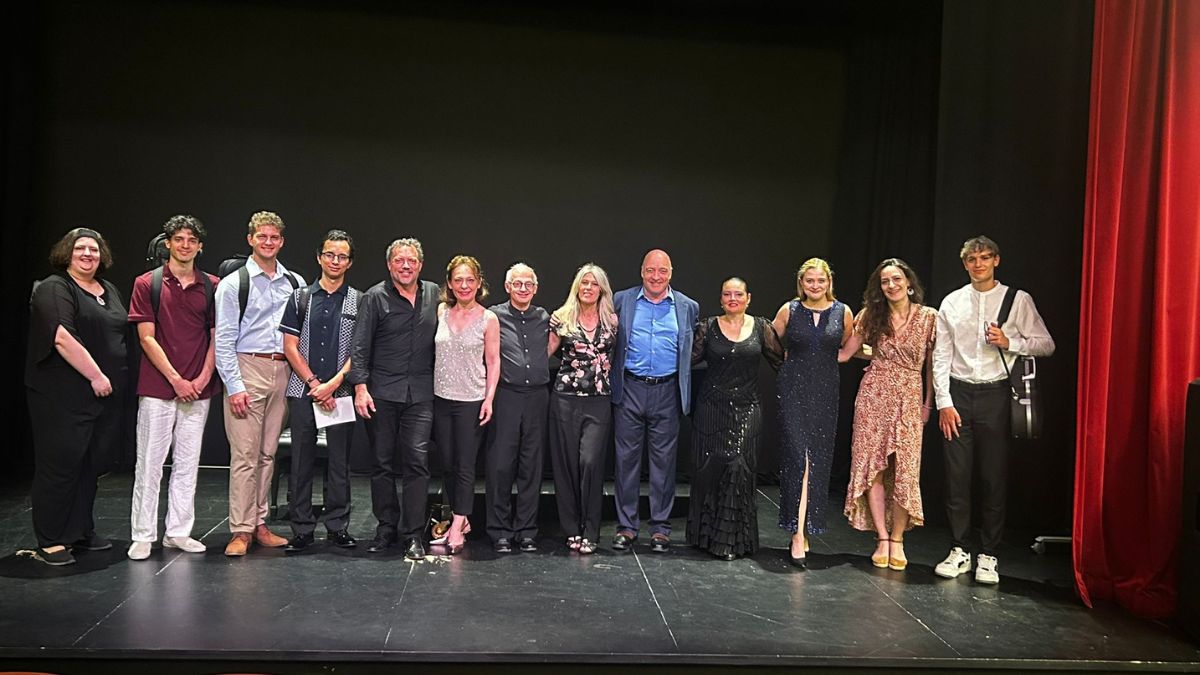
Why is it your mission to bring forward this cultural and musical heritage to a new generation of musicians?
"I truly tire of hearing too many technically skilled performances that nonetheless lack heart and soul. I’m sorry to say that today we are at risk of forgetting why we perform music in the first place. Music can connect people deeply. It can allow us to share a common experience at the soul level if it is performed with that desire, and I find that reminding young performers of that mission has become critically important today. We must never abandon the skill of “playing from the heart.”"
Can you share a memorable story of a past participant who was deeply transformed by the Al-Andalus Masterclass?
"I remember a participant in the 2025 Masterclass Al-Andalus who performed Spanish repertoire alongside the amazing dancer and castanet player Estefanía Brao. There were several amazing “lightbulb moments” during the rehearsals when she gained a deeper understanding of the music she was playing from the perspective of the native culture. Many in the rehearsal hall were moved to tears by the “rightness” of the beauty they heard and saw on stage. I truly believe that everyone who witnessed it carries that memory with them today."
Looking ahead, how do you envision the masterclass evolving over the next decade, and what do you hope its legacy will be?
"I would very much like to expand Masterclass Al-Andalus into a larger-scale project called “Festival Al-Andalus: A Celebration of Peace.” I would like to incorporate other art forms into the festival, celebrating that it is truly possible for people with religious or ideological differences to maintain their strong individuality while embracing common ground. This was accomplished during the “Golden Era” of Al-Andalus, and I believe it should be celebrated and embraced as a possible path forward for humanity.
More practically, I would be very happy if Masterclass Al-Andalus helped produce true artists for the world’s concert stages. Their renewed values – as experienced firsthand in Andalusia – might result in more meaningful performances, deeper, heartfelt expressions, and a revitalization of the concert experience today. That would be a very fine legacy across time."
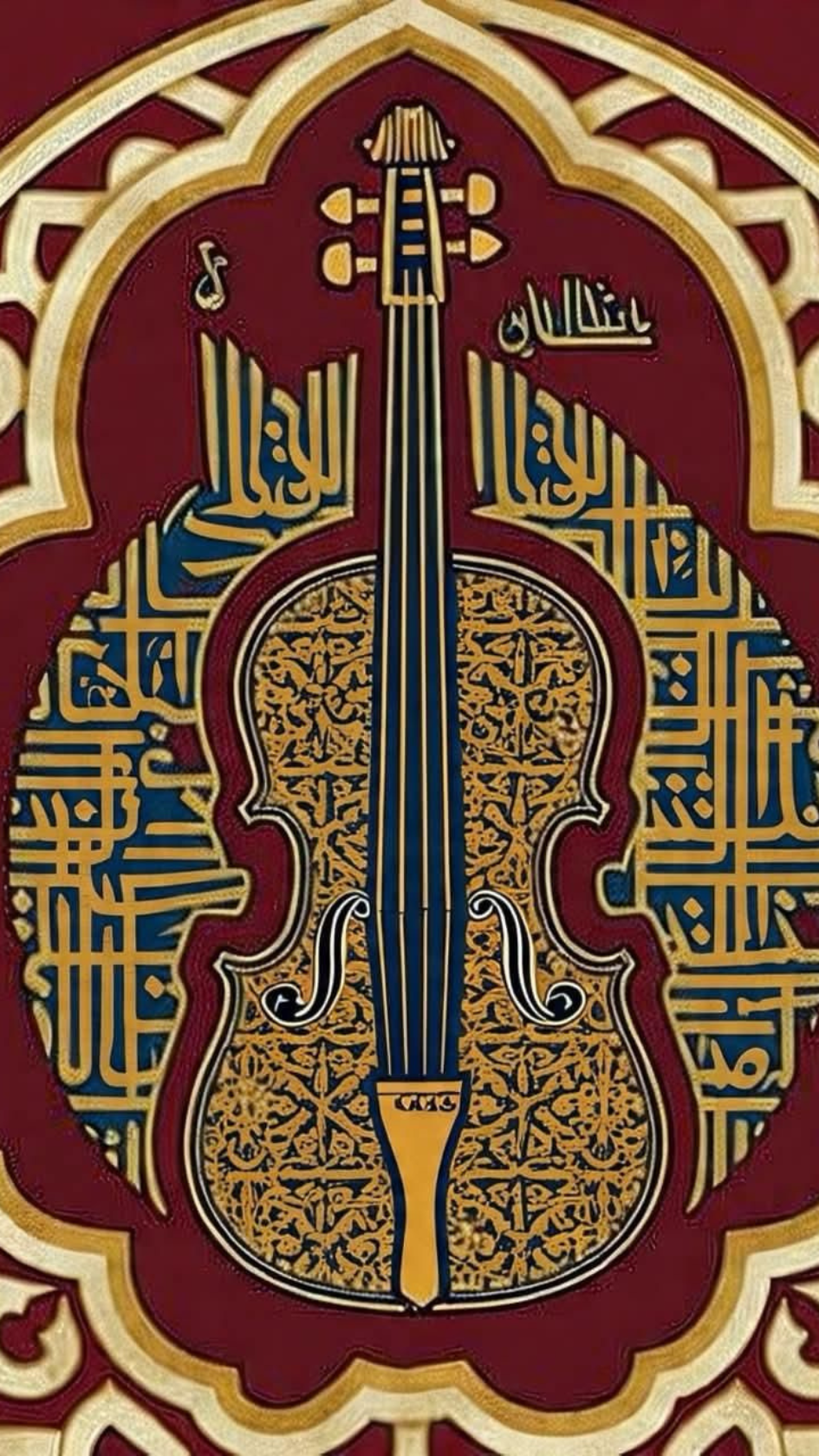
The Al-Andalus Violin Experience with David Russell
Experience Masterclass Al-Andalus through three inspiring violin masterclasses directed by renowned pedagogue David Russell. Filmed in Granada, Spain, these sessions blend world-class violin instruction with the spirit of Andalusian culture, where the traditions of Arabic, Jewish, and Christian cultures once intersected. Alongside technical and musical insights, the masterclasses reflect the unique cultural fusion that shaped Western classical music. Find the collection here
Violinist David Russell is widely considered to be one of the top violin pedagogues of our time. While still in his teens, Professor Russell was appointed to the violin faculty of Ivan Galamian’s Meadowmount School of Music, a school which produced violinists such as Itzhak Perlman, Michael Rabin, Pinchas Zuckerman, Joshua Bell, and many others of international acclaim. Russell currently serves as the Anne Reynolds Belk Distinguished Professor of Violin at UNC Charlotte.
Find more about the Masterclass in Granada, which will take place next summer 2026 here.
